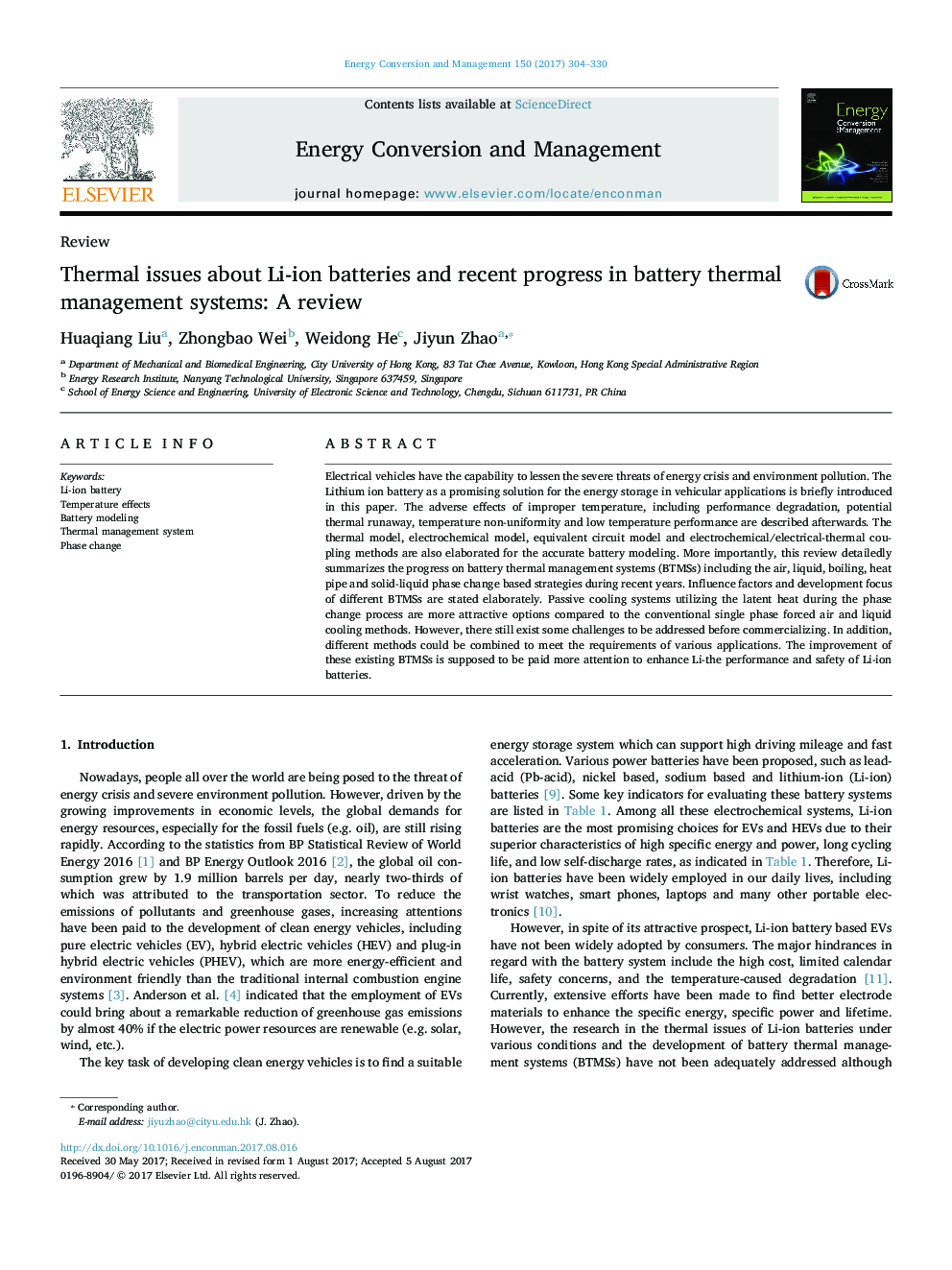| Article ID | Journal | Published Year | Pages | File Type |
|---|---|---|---|---|
| 5012280 | Energy Conversion and Management | 2017 | 27 Pages |
Abstract
Electrical vehicles have the capability to lessen the severe threats of energy crisis and environment pollution. The Lithium ion battery as a promising solution for the energy storage in vehicular applications is briefly introduced in this paper. The adverse effects of improper temperature, including performance degradation, potential thermal runaway, temperature non-uniformity and low temperature performance are described afterwards. The thermal model, electrochemical model, equivalent circuit model and electrochemical/electrical-thermal coupling methods are also elaborated for the accurate battery modeling. More importantly, this review detailedly summarizes the progress on battery thermal management systems (BTMSs) including the air, liquid, boiling, heat pipe and solid-liquid phase change based strategies during recent years. Influence factors and development focus of different BTMSs are stated elaborately. Passive cooling systems utilizing the latent heat during the phase change process are more attractive options compared to the conventional single phase forced air and liquid cooling methods. However, there still exist some challenges to be addressed before commercializing. In addition, different methods could be combined to meet the requirements of various applications. The improvement of these existing BTMSs is supposed to be paid more attention to enhance Li-the performance and safety of Li-ion batteries.
Related Topics
Physical Sciences and Engineering
Energy
Energy (General)
Authors
Huaqiang Liu, Zhongbao Wei, Weidong He, Jiyun Zhao,
